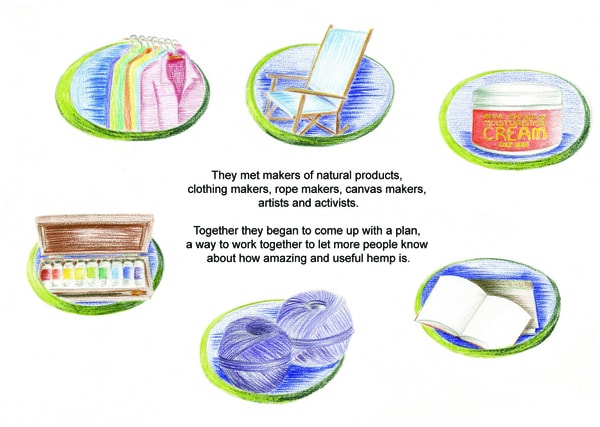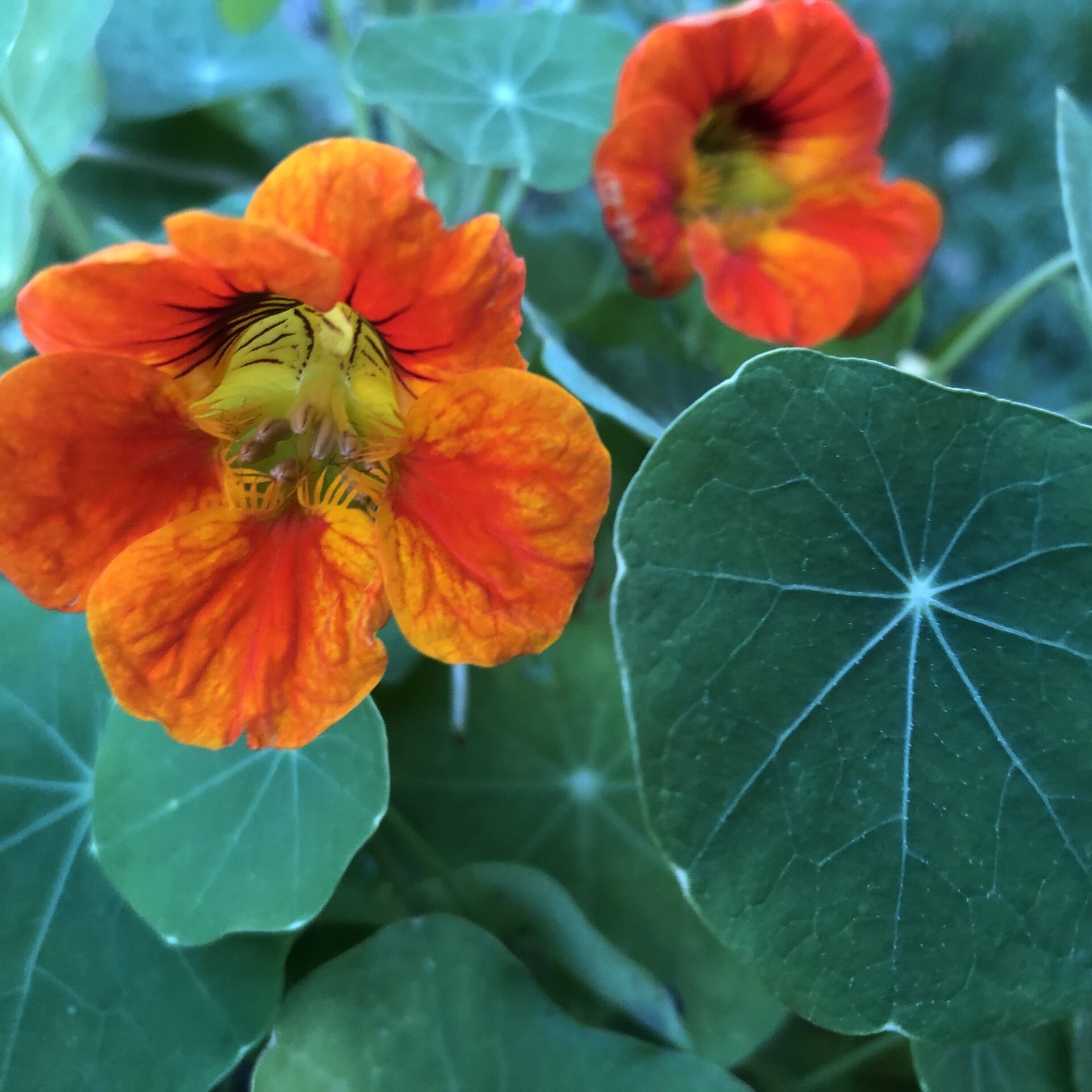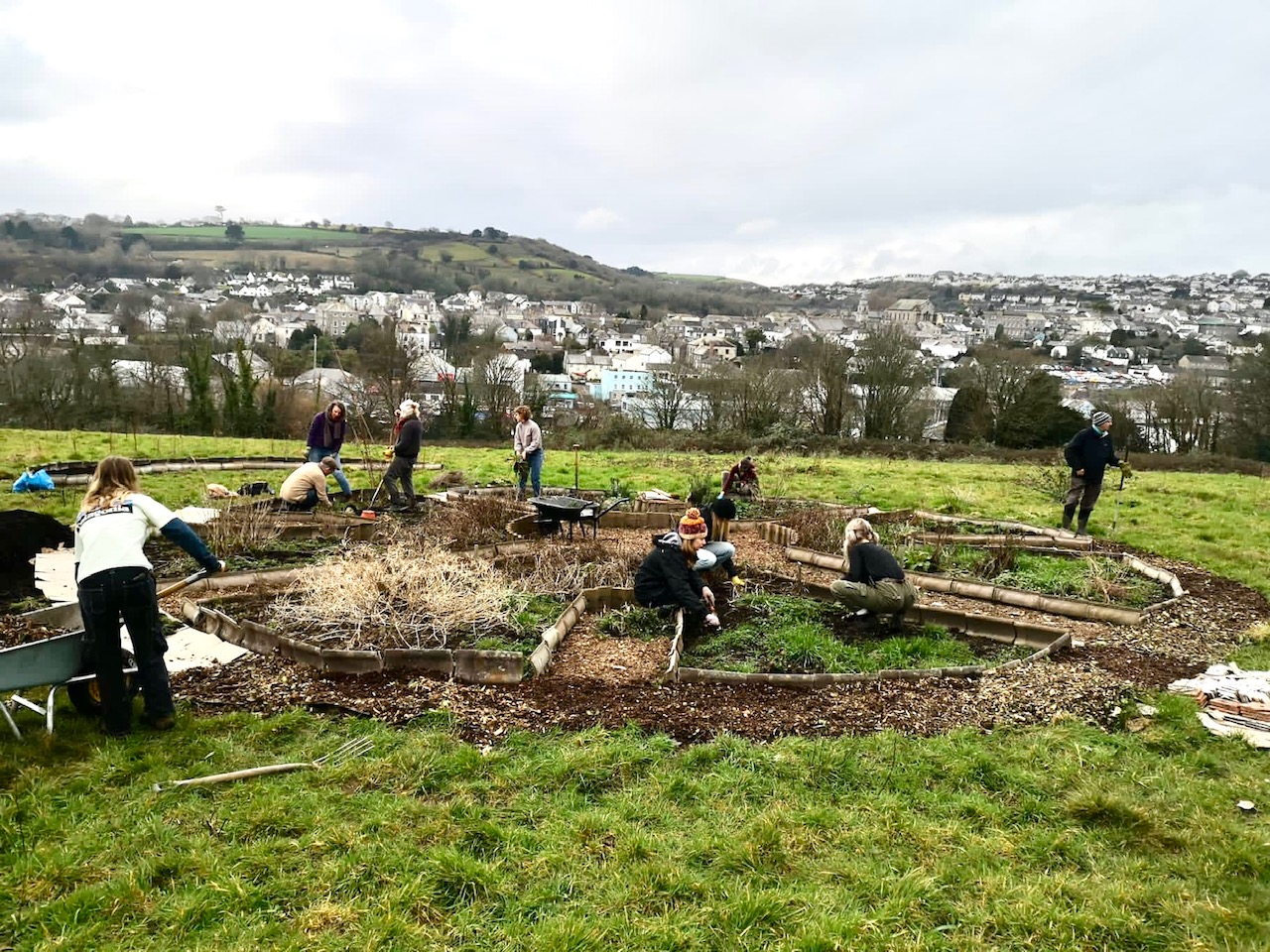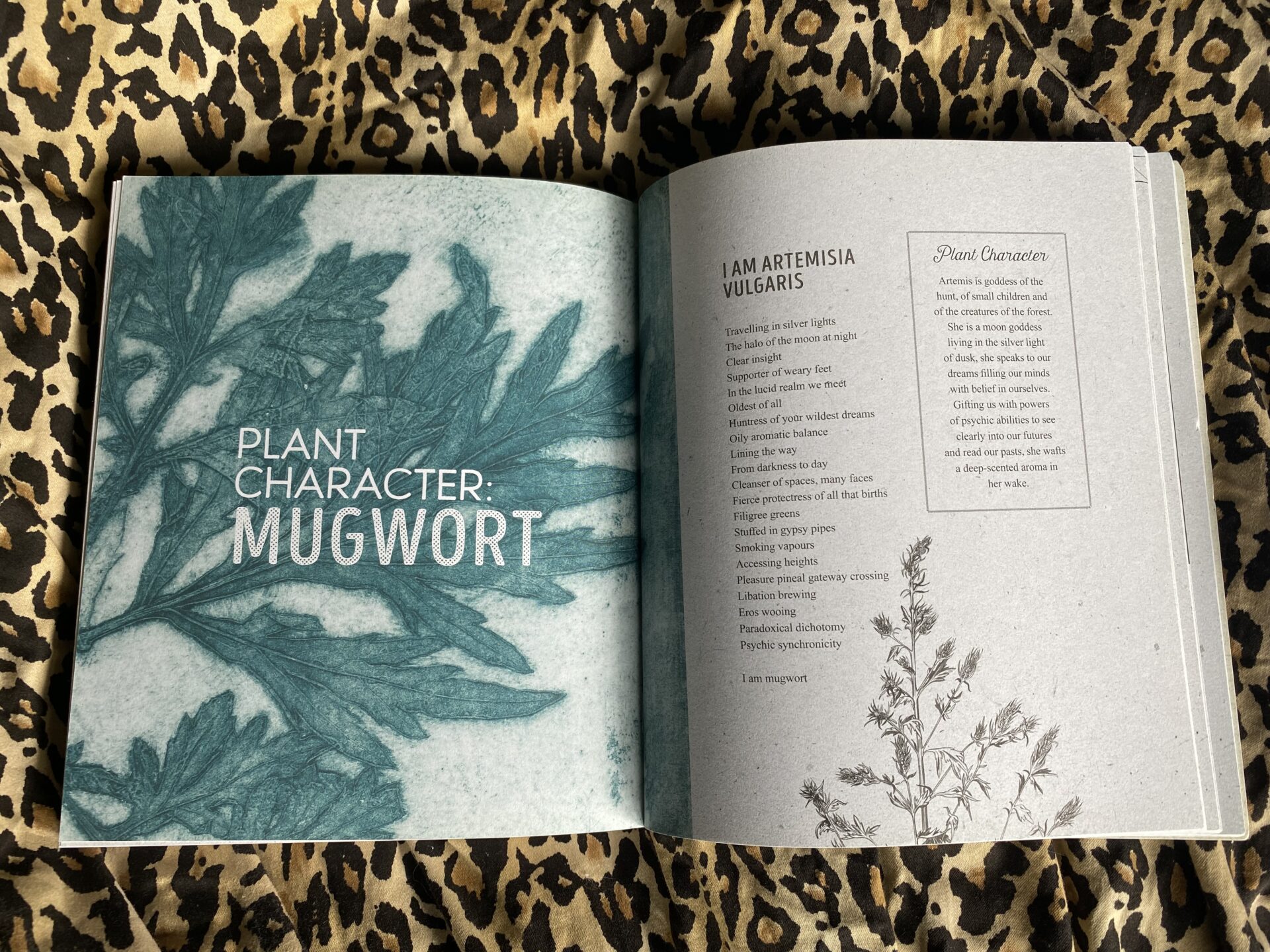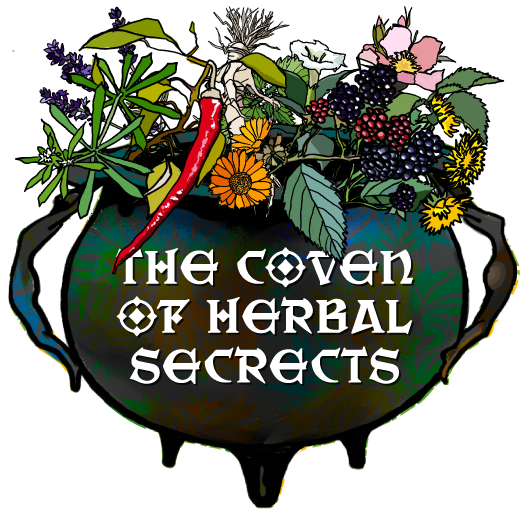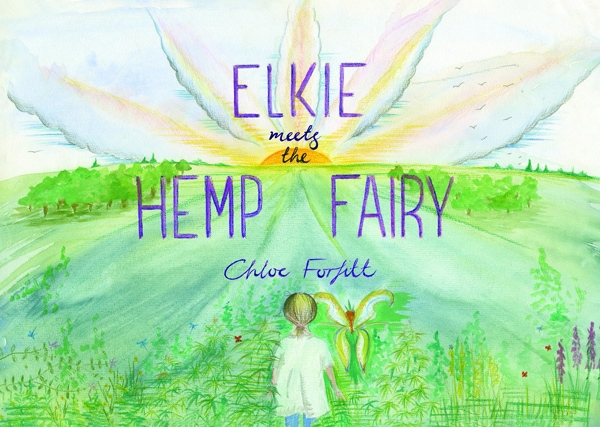
By Chloe Forfitt
Recently I’ve published my first book. It’s a beautiful wee thing- children and their parents appear to love it. And it’s all about cannabis.
Elkie Meets The Hemp Fairy is a children’s book inspired by my daughter Elkie. After hearing a tune by reggae artist Macka B she asked in all seriousness, “Can we go to the Land of Sensi one day Mummy?” Macka B’s track The Land of Sensi presents a world where the fish and birds are happy eating hemp seeds, all books are made from hemp paper, all clothes are made from hemp… It’s a great tune, and it paints a beautiful picture. I want to go too, which is why I wrote the book.
Maybe ALL clothes made from hemp is a bit extreme but we’ve got some environmental insanity to sort out and it seems that hemp could help. Hemp farming uses minimal pesticides and fertilizers. The fabric production requires FAR fewer chemicals than cotton. All this means that the chemical pollution of our water sources could be cut significantly. Seeing pollution floating on the surface of our water hurts my heart; sore eyes and rashes after having swum in a beautiful river clearly show harm to mine and my child’s bodies. I want a better world for my daughter and I think hemp has the potential to bring about positive changes.
In the book, Elkie is taken by the Hemp Fairy to Hemp Land and shown many of the person and planet-healing things that hemp can do. Hemp can make a biodegradable alternative to plastic! A non-toxic alternative to concrete! The seeds contain more omegas than fish! Apparently there are 25,000 uses of hemp. It’s boggling. And super-exciting. We all know sustainability is our only route to surviving and thriving. As hemp grows fast and improves the soil it provides a viable alternative to many currently used, less sustainable fibers.
Initially the book was to be called The Land of Sensi until I realized that sensimilla means “without seeds.” I like things as natural as possible- the way that cannabis is dealt with is anything other than natural in most situations. It was also decided to keep the term cannabis out of the book due to the confusion around hemp v. cannabis and their different properties.
In the book Elkie’s Grandad, grows his medicine in his garden- if only this had been true to life. I was able to see first-hand the fear that remains around cannabis when I offered Elkie’s real-life, cancer-suffering grandad CBD oil. It turns out that some would rather die than go against the doctor’s orders. I understand, if you start taking a substance that you have been led to believe is the devil’s weed, your whole view of the world could quite possibly shift. Which is a scary concept: in general us humans are not the biggest fans of sudden change. However, those that are taking their health into their own hands are having their lives transformed. An increasing number of people are embracing change and thriving as a result.
In the research for this book but actually more since its creation, I’ve met an incredible group of hemptastic people. I’m now something of an activist. It’s hard not to be when you hear story after story from person after person who has had their life transformed by cannabis. For the better. They have inspired me to develop a coaching plan for sufferers of chronic conditions: identifying areas of their life which might be out of balance and then supporting their healing journeys, using cannabis plants and extracts. There is still a lot of fear and misinformation surrounding the plant, some friendly advice and support can be useful. In Glastonbury, where I live, we are setting up a cannabis dispensary. I have been so inspired by the work of Valerie Leveroni Corral at The Wo/Men’s Alliance for Medical Marijuana in California. 25 years ago, WAMM had their medicinal garden destroyed time and again by the authorities but they kept at it until legislation was passed which meant they could practice legally. Now the cannabis industry is flourishing across the United States. Here and in other countries where cannabis remains illegal, even for medicinal use, pressure for change is coming most powerfully from parents of sick children. Parents who, when all else has failed have turned to cannabis to treat their family members. That degree of fierce love feels unstoppable. Change is simply inevitable.
Everything I have learnt on this cannabis journey is very far removed from the couch-locked stoners that I remember from my student days. It’s been an edgy subject to work with as there’s no denying there’s over-use and abuse of the plant. Not least in the way that it is artificially cultivated to produce a freaky plant with CBD (anti-psychotic) almost entirely removed and THC (psychoactive) hugely increased. It seems akin to the Native American’s respect and reverence of tobacco compared to the way the plant is used by our culture. If you don’t treat a strong plant medicine with the respect it deserves, you can be sure you’re going to get a kicking! At the time when I was writing the book, I was working with teenagers at a school in Herefordshire. They haven’t taken me up on my offer to speak since the book has been published as they are probably worried I would advocate growing a few plants in your garden. They are probably right, I probably would. Skunk is a terrible thing to inflict on a growing and developing brain.
I’m more than happy for my daughter to be brought up in a home where cannabis is openly spoken of and respected for its medicinal properties as well as its planet-saving potentials. I’ve fielded a few comments about indoctrination, drugs and ethics. One journalist warned me that as a single mum, writing about cannabis for kids, I could get torn to shreds by Daily Mail folk. But as he spoke I felt the presence, not only of my supportive community of friends but also of the wider cannabis reform community. We know the way it’s going. The reaction to Theresa May’s recent refusal to consider new legislation on the plant shows just how much support exists for reform. The gateway to hard drugs theory no longer holds water for most. With so many people who might previously have been scared by the possibility of Reefer Madness now finding healing through non-psychoactive extracts, the plant is being repatriated. Kids can see through the craziness: “How can a plant be illegal Mummy?” my daughter asks. Change is a’comin.
